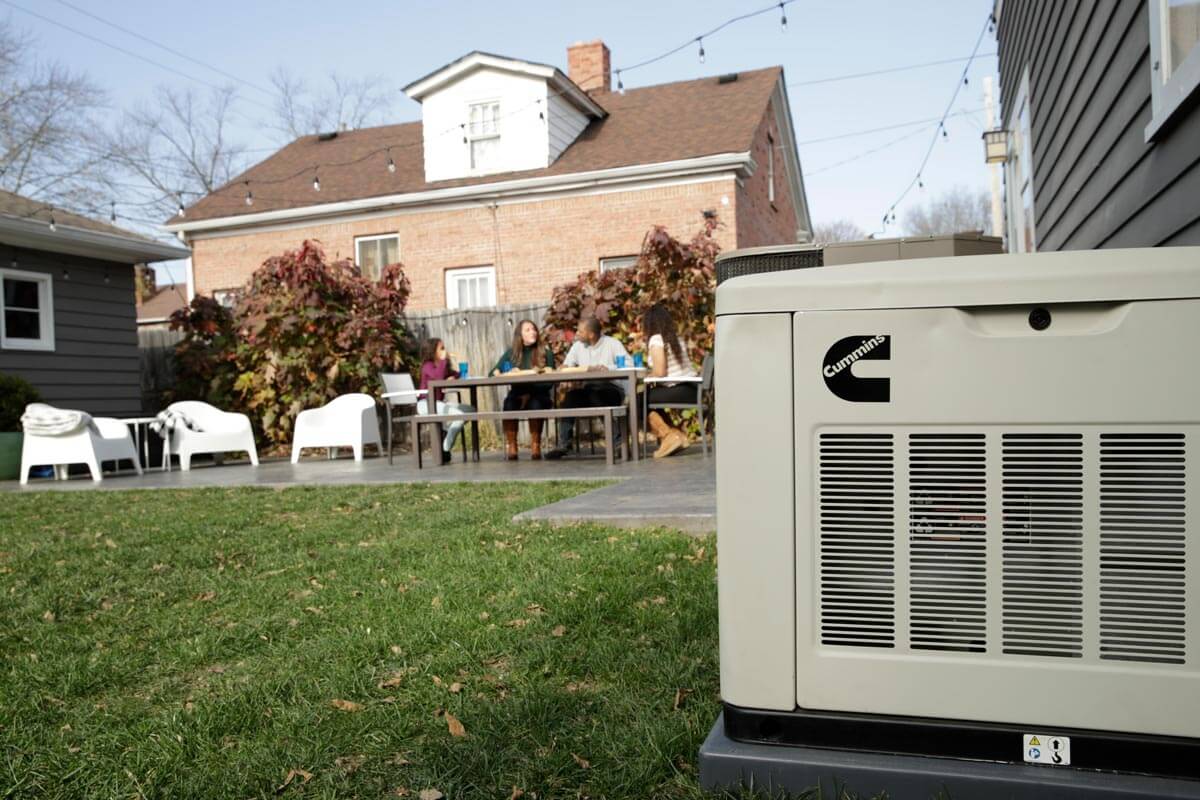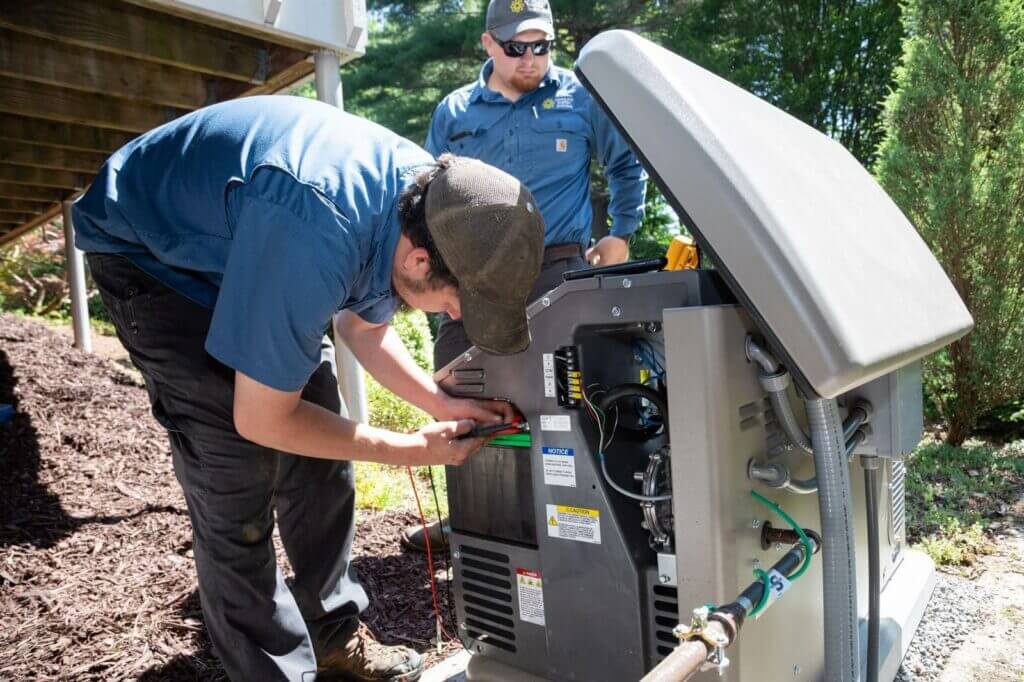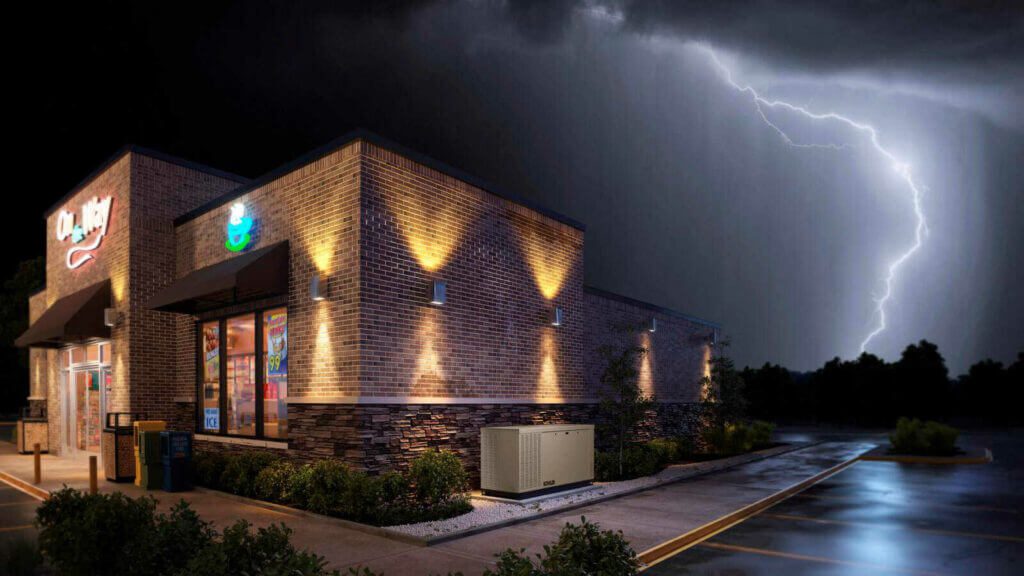Having a standby or whole-home generator is a great way to make sure your house is fully powered and ready for whatever the world throws at it.
We know that generator repair and installation can be expensive, but the investment is worth it if this solution to a temporary power outage gives you and your family peace of mind and a sense of control over your safety and comfort. In order to reduce the cost and hassle of needing to install a new generator before you should expect to replace it, you’ll want to do all that you can to extend the life of the one that you have.
The Life Expectancy Of Generators
What factors contribute to generator life expectancy?
There are many factors that contribute to determining the life of a generator. First and foremost, a quality installation that doesn’t cut corners. Other factors include the overall quality of the product, the fuel source (i.e., natural gas, diesel, propane), the size of the machine, and, of course, how well it is maintained.
How long should I expect my generator to last?
This all depends on the type of machine and its usage. Some larger liquid-cooled generator companies predict that your standby generator can last between 1,500-3,000 hours of run time and even much more in instances, or approximately 20 to 30 years. Smaller Air-cooled units have a shorter life expectancy of around 12-15 years.
How can I extend the life of my generator?
The best way to keep your generator in good working condition is to stay up to date with the recommended generator services and maintenance plan and contact us at Carolina Energy Systems to conduct routine generator services.
Generator Maintenance
While they’re convenient, generators are not “set and forget” machines.
Establishing and following a regular maintenance schedule is essential for anyone who must maintain a generator backup for their residential home or commercial business in case of a power emergency. This applies regardless of whether the generator is powered by diesel fuel or natural gas.
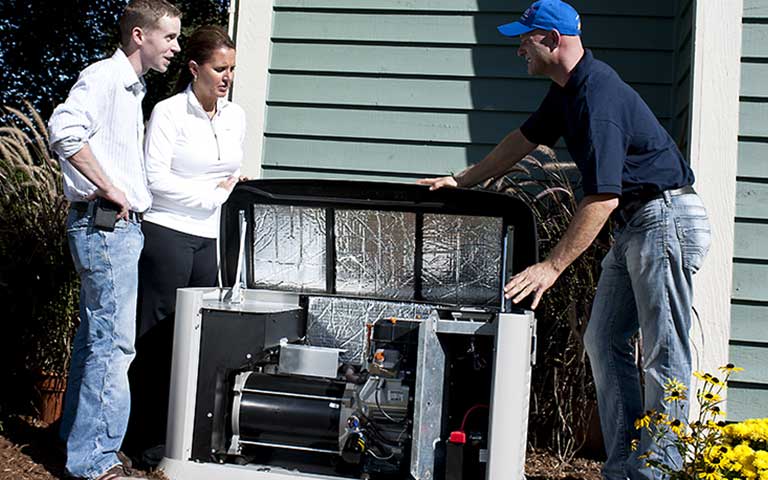
And don’t worry—the installation engineers and service technicians at our company will make sure that you aren’t alone in this process. We are here to assist you along the way by providing answers to questions that you may have and any generator services that you may require.
Keep The Site of Your Generator Clean & Safe
Whether your generator is residential, commercial, or industrial, generators perform best when the site of installation is well-ventilated and cleaned regularly.
Our experienced technicians take care to assess the site for the optimal location for your new generator before installation, also making sure that it can be accessed by our certified personnel during any future servicing visits or repairs.
Taking Care of My Generator
You play a crucial role in taking care of your generator. Perhaps the biggest advantage you have in ensuring the reliability of your generator is keeping an up-to-date, written record of all inspections, maintenance, repairs, and services that have been performed on your generator. That way you can easily determine what has been done and what still needs to be done to keep your system operating at full capacity.
In order to create a regular generator maintenance plan, you need to take into account both your environment as well as the typical workload of the generator. Generators need to be serviced more often than they are used.
To assist with establishing your plan and determining which tasks should go on your checklist, most generators come with their own manufacturer recommendations for proper servicing and operation.
How often should I power up my generator?
Most generators are set to self-test on a weekly or biweekly basis. If there is a problem detected during this self-test an error condition will be the result and will require additional investigation.
Manually powering up your generator every three months or so is a good practice. This allows your generator’s internal fluids to activate and condition the engine and moving parts. Leading manufacturers recommend that owners of residential generators or commercial generators run their generators every three months for about 30 minutes.
This routine operation charges the battery for the electric starter—the last thing you want is to discover that your electric starter or battery is dead when you’re in a power emergency.
Generator Maintenance Before Each Use
Each time you use your generator, you should make sure to follow a few key maintenance steps to keep it running safely and smoothly.
General Inspection
Conduct a general inspection of the generator’s systems. Check that there is no visible damage to the generator and that the wires, equipment, and surrounding environment are in optimal condition.
Inspect For Fuel Leaks
Visually inspect your fuel levels. It is better to find a fuel leak before you need your generator to run. Visual inspection of fuel can also detect major contamination.
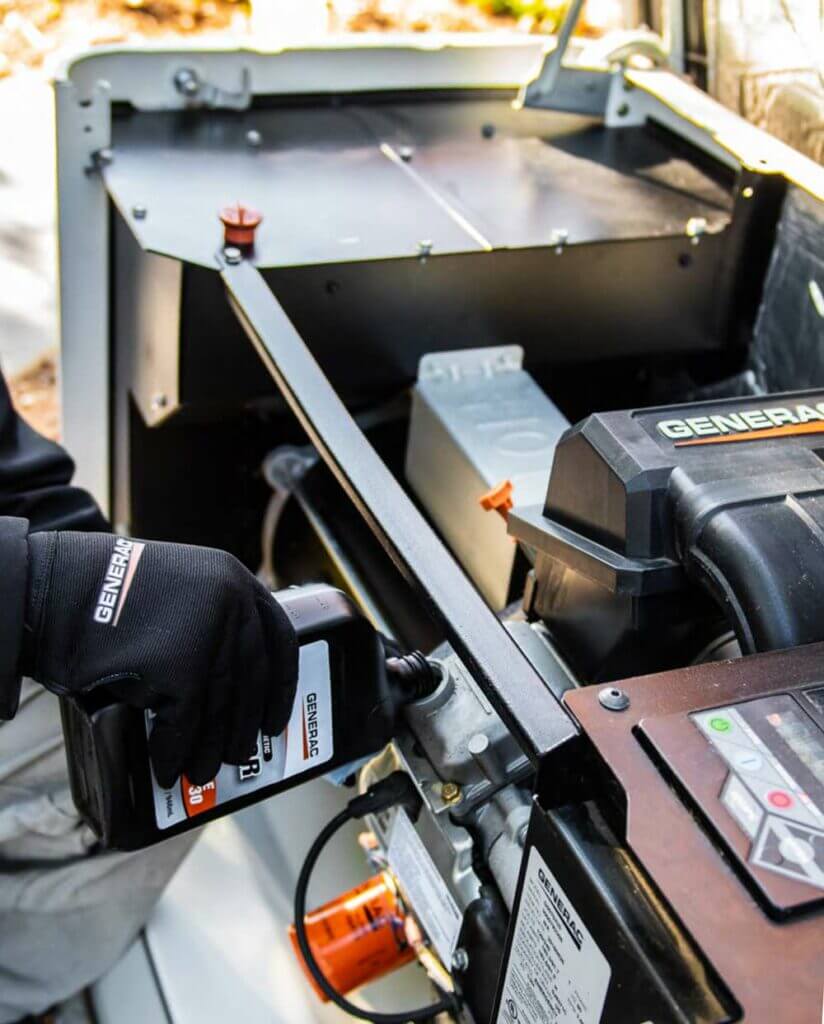
Test Battery
A generator’s engine is very similar to a car engine. While you will need fuel to run the engine, you will also need a battery to power the electronic components. The generator detects when power is lost, and the battery helps to restart the engine within seconds. Test that the batteries are working regularly.
Check For Corrosion
Corrosion can cause generators not to start by preventing the electrical circuit from concluding. Check your manual to find out how to do this safely and clear away any corrosion.
Replace Battery When Necessary
As time passes, batteries will lose their charge. Most generator batteries should be replaced every three years. However, if your battery is still providing enough power, you might be able to extend the interval to 36 months.
Check Air Intake & Exhaust Channels
Assure that there is no debris interfering with the intake and exhaust channels of your generator. Consult your manufacturer guide for more information.
Routine Generator Services
How often should I hire a professional for generator service?
We recommend that whole-house and standby generators be serviced by a professional every six months, or every 400 hours of usage—whichever comes first.
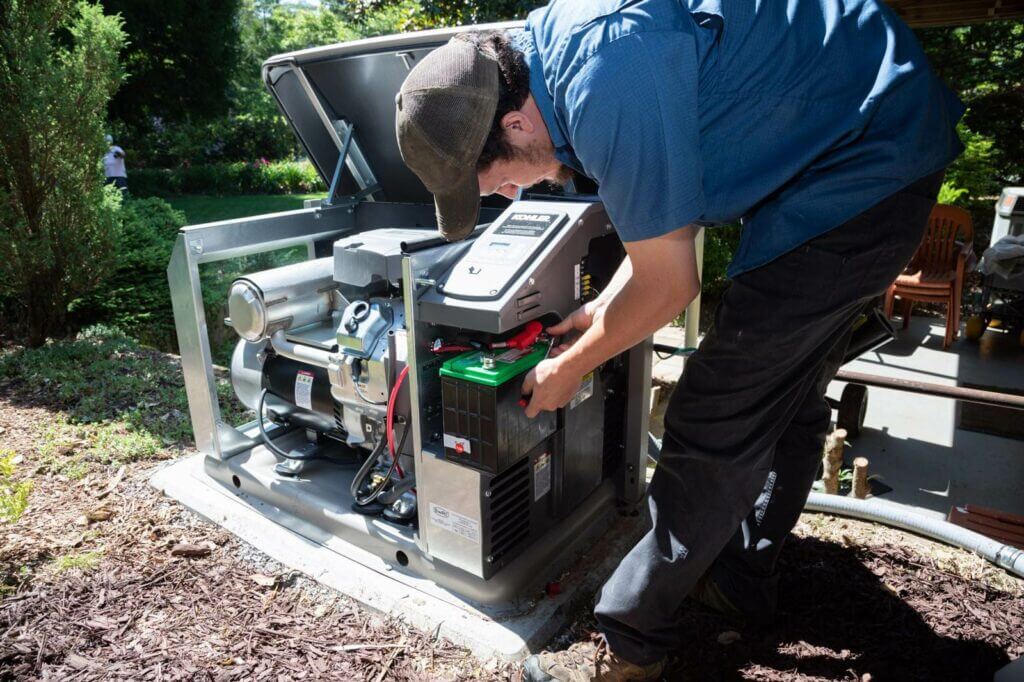
Common Generator Services
Fuel Tank Services
This includes cleaning the fuel and air filters, flushing fuel tanks, and replenishing the tank with high-quality natural gas or diesel fuel.
Load Bank Testing
Gas ash, carbon and other deposits can build up in a generator that is not fully loaded. A generator load bank test will burn these deposits and prolong your generator’s lifespan. This helps to reduce the chance of a generator going out of control.
Need Generator Services? Contact Us!
Let Carolina Energy Systems be your leading provider for generator installations, generator repairs, and generator services. Contact us online or by phone to schedule a routine service or repair and help prolong the life of your generator

